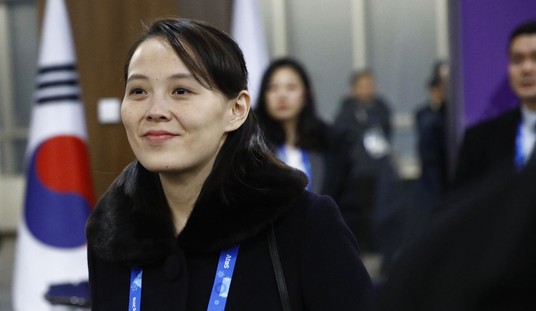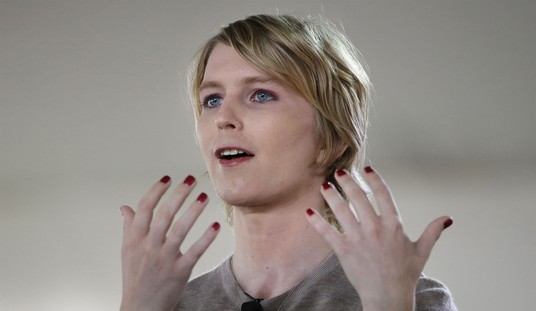Remember the so-called “Duke lacrosse rape case”? That was the scandal that briefly riveted the nation’s attention not once but twice. The first time was in March 2006 when a black stripper called Crystal Mangum accused three Duke University lacrosse players of kidnapping and rape. Yikes. The bien pensant commentariat went into overdrive to condemn not just the three lacrosse payers, but the entire Duke lacrosse team and indeed the “racist” culture of white privilege at Duke.
A few days ago, Ms. Mangum was convicted of second-degree murder in the death of her boyfriend who died from wounds she inflicted with a kitchen knife. That hasn’t made too many headlines, but its is a sad, if ironically apt, coda to the whole sorry story.
Travel back to 2006. Syracuse University early on got into the act when it decided not to accept as transfers any students from the Duke lacrosse team—not just the three accused chaps, mind you, but anyone contaminated by having played lacrosse for Duke. “I think it would be inappropriate,” sniffed Syracuse athletic director Daryl Gross. (Where is he now? Llama farming in Peru? Nope. Still athletic director at Syracuse.)
But there are at least two other aspects of the case that deserve comment. One is the role of the media, which pounced on the story with unseemly delight. Oh, how the New York Times, the Boston Globe, and countless other bastions of liberal self-satisfaction loved it! Race. Class. Sex. Victimhood. It was the perfect morality tale. Those white jocks at “the Harvard of the South” just had to be guilty. And what a good time we were all going to have lacerating the malefactors while at the same time preening ourselves on our own superior virtue!
The editorials, the op-eds, the comments, the analyses poured forth non-stop, demonstrating that one of the deepest human passions is the urge to self-righteous pontification. The novelist Allan Gurganus epitomized the tone in an op-ed for the Times in April 2006: “The children of privilege,” he thundered, “feel vividly alive only while victimizing, even torturing.” You don’t say? Even sports writers got into the act. Selena Roberts located Duke University “at the intersection of entitlement and enablement, . . . virtuous on the outside, debauched on the inside.” By August 2006, as District Attorney Michael Nifong’s case was betraying worrisome fissures, the Times published a 6,000-word article arguing—“praying” might be a more apposite term—that, whatever weaknesses there might be in the prosecution’s case, “there is also a body of evidence to support [taking] the matter to a jury.” As the Times columnist David Brooks ruefully noted after the tide had begun to turn, the campaign against the athletes had the lineaments of a “witch hunt.”
Indeed. Richard Brodhead, Duke’s president, got out his broomstick and suspended the accused students, fired the lacrosse coach, cancelled the rest of the team’s season, and pandered to every possible PC interest, but especially to those baying for the heads of the accused. (One commentator estimated that only 3 percent of Brodhead’s statements could be construed as supporting the accused students.)
And then there was the Duke faculty. As Vincent Carroll, writing in the Rocky Mountain News, noted, “the most astonishing fact, hands down, was and remains the squalid behavior of the community of scholars at Duke itself. For months nearly the entire faculty fell into one of two camps: those who demanded the verdict first and the trial later, and those whose silence enabled their vigilante colleagues to set the tone.”
Particularly egregious was the behavior of the “Group of 88,” a congeries of faculty activists and fellow-travelers who signed “What Does a Social Disaster Sound Like?,” a full-page manifesto published in April 2006 in the Duke student newspaper. The statement, which purported to be “listening” to students on campus, mingled anonymous student comments with racialist agitprop. “Regardless of the results of the police investigation,” ran part of the introductory comment, “what is apparent every day now is the anger and fear of many students who know themselves to be objects of racism and sexism.” There followed a mosaic of histrionic proclamations: “We want the absence of terror,” one student is supposed to have said. “But we don’t really know what that means.” “This is not a different experience for us here at Duke University. We go to class with racist classmates, we go to gym with people who are racists . . .”
Some of the Group of 88 were common or garden-variety academic liberals—timid souls whose long tenure in the protected purlieus of the university surrounded by adolescents has nurtured their risible sense of self-importance and political enlightenment. But a good percentage were radicals more devoted to political activism than scholarship. Indeed, one scandal that still has not received sufficient publicity is the preposterous pseudo-scholarship purveyed by many trendy academics. A look at the CVs of many members of the Group of 88 provides a case in point, partly shocking, partly embarrassing. It’s 99 percent race-class-gender gibberish embroidered with a toxic dollop of ill-digested lit-crit-speak and infatuation with the dregs of pop culture. “Shuckin’ Off the African-American Native Other: What’s PoMo Got to Do with It?,” Soul Babies: Black Popular Culture and the Post-Soul Aesthetic, etc. This is scholarship at one of America’s best universities?
One of the central players in the scandal was Houston A. Baker, Jr. A former president of the Modern Language Association, Baker has built his career through a carefully orchestrated fabrication of race scandals and juvenile cultural relativism. (Choosing between Shakespeare and Jacqueline Susann, he once wrote, is “no different from choosing between a hoagy and a pizza,” adding that “I am one whose career is dedicated to the day when we have a disappearance of those standards.”) Soon after the lacrosse scandal broke, Professor Baker called for “immediate dismissals of those principally responsible for the horrors of this spring moment at Duke. Coaches of the lacrosse team, the team itself and its players, and any other agents who silenced or lied about the real nature of events.” He joined the other members of the Group of 88 in signing a “thank you” letter to campus radicals who had distributed a “wanted” poster of the lacrosse players and publicly branded them “rapists.” After the more serious charges against the three students were dropped in December, the mother of another member of the team emailed to ask if he would reconsider his comments. Professor Baker’s response is illuminating:
LIES You are just a provacateur [sic] on a happy New Years [sic] Eve trying to get credit for a scummy bunch of white males! . . .
I really hope whoever sent this stupid farce of an email rots in. . . . umhappy [sic] new year to you . . . and forgive me if your [sic] really are, quite sadly, mother of a “farm animal.”
Houston Baker was the George D. and Susan Fox Beischer Professor of English at Duke. How proud the Beischers must have been! In the aftermath of the Duke scandals, Baker decamped to a distinguished professorship at Vanderbilt University. What does that tell us about the state of American academia?
Nothing good. But Richard Brodhead and the Group of 88 were not the only ones out of control. There was also former District Attorney, now the disgraced and disbarred former District Attorney Michael Nifong. In a disgusting spectacle of prosecutorial abuse, Nifong suppressed evidence about the case, cynically bartering the lives of three white lacrosse players in his populist bid to win reelection in racially divided Durham.
The second suite of attention-grabbing headlines came on April 11, 2007, when Roy Cooper, the North Carolina attorney general, announced that he was dropping all charges against the three Duke lacrosse players who had been indicted for kidnapping and raping Crystal Mangum. As Mr. Cooper stressed, he was dropping the case not because there was insufficient evidence—often a euphemism for “probably guilty, but we can’t prove it”—but because the three players were completely innocent of the charges that had recklessly been brought against them. Mr. Cooper went further: not only had there been “a tragic rush to accuse and a failure to verify serious allegations,” but the case also showed “the enormous consequences of overreaching by a prosecutor.”
The story of this tawdry melodrama at Duke deserved an entire book, and it got a very good one in Until Proven Innocent: Political Correctness and the Shameful Injustices of the Duke Lacrosse Rape Case by KC Johnson, a professor of history at Brooklyn College, and the journalist Stuart Taylor. They show in horrifying detail how “many professors and, to a lesser extent, administrators at one of the nation’s finest universities chose to grind their radical political axes at the expense of both their own students’ well-being and the academy’s traditional fidelity to due process.”
Many of people suffered because of the Duke farce. But what of Professor Bakers and his preening, activist colleagues? What of the Group of 88? Only one member apologized. The rest issued a statement that categorically rejected all “public calls to the authors to retract the ad or apologize for it.” I’ve often had occasion in the space to allude to Glenn Reynolds’s contention that higher education in this country is experiencing a dangerous and unsustainable bubble. What happened at Duke, up to and including the grisly aftermath of the conviction of Crystal Mangum for murder, is part of that story of hyperinflation. Travesty finally met tragedy. But the Group of 88 and their enablers sail blithely on. For now.
__________________
**CORRECTION** In the original posting, I had misidentified Michael Nifong. He was District Attorney for Durham County.









Join the conversation as a VIP Member